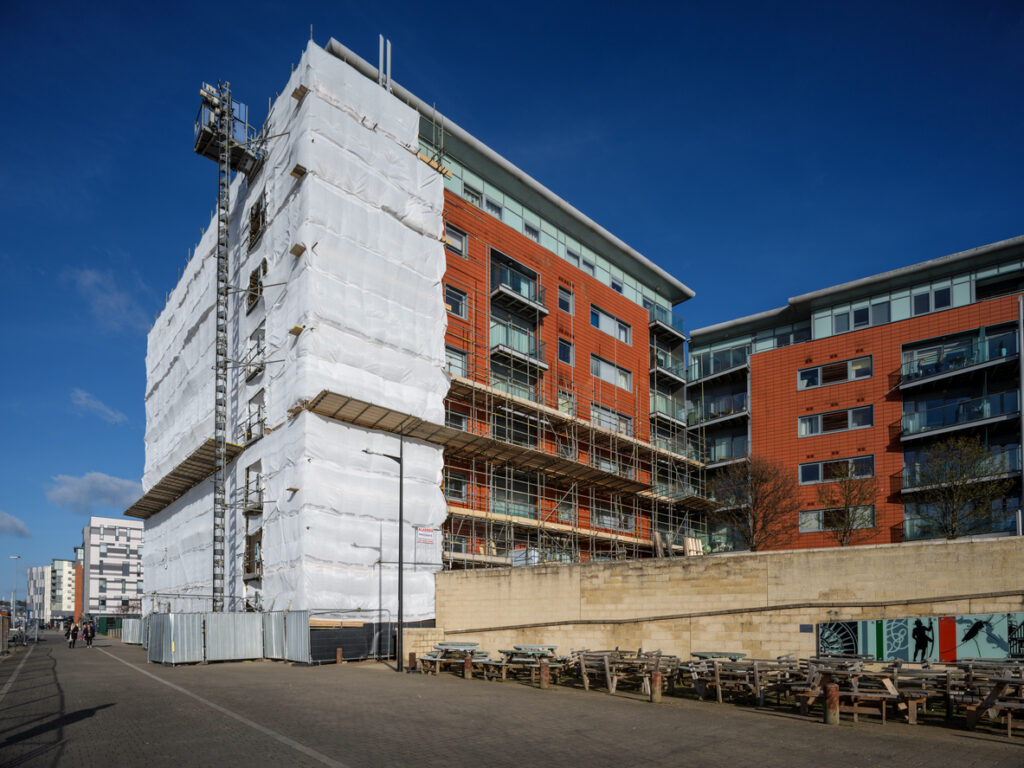Key takeaways
- Lenders including NatWest and Nationwide are refusing mortgage offers based on Tri Fire-issued EWS1 forms. This is causing sales to fall through and preventing leaseholders from moving or remortgaging.
- Housing associations face reputational damage and growing pressure from leaseholders. They also bear the financial cost of commissioning new assessments, extended holding periods, and possible additional remedial works.
- Housing providers may need to seek legal advice regarding potential claims against Tri Fire and update their internal risk registers to reflect these emerging threats.
Call us free today on 0330 0240 3338 to see how our affordable housing lawyers can help
Or if you would like to request a call back, simply click the button below, fill in the contact form and we will call you back as soon as possible.
Background: fire safety and the role of EWS1 assessments
Following the recent, high-profile issues concerning fire engineer Adam Kiziak of Tri Fire, and the questions this has raised about the reliability of EWS1 and PAS 9980 assessments undertaken by Tri Fire, we explore the major issues now facing affected parties across the housing sector.
In the aftermath of the tragic Grenfell Tower fire in 2017, the government introduced several legislative measures to improve fire safety standards in residential buildings. One of the key developments was the ban on the use of combustible cladding on high-rise buildings in England, formalised through the cladding ban regulations. However, the market remained unsettled, particularly when it came to high-rise apartment blocks with external wall systems.
In 2019, to address these ongoing concerns, the Royal Institution of Chartered Surveyors (RICS) introduced the EWS1 Form, as part of the External Wall Fire Review (EWS) process. The purpose of this was to give assurance to lenders, valuers, buyers, sellers, and residents that a building’s external wall system was safe, and that the property remained mortgageable and insurable. Importantly, EWS1 forms must be signed off by a suitably qualified and competent professional—someone with the expertise to assess the safety of the external wall system.
Tri Fire and Adam Kiziak: what has happened?
In January 2025, the BBC reported that Adam Kiziak, a fire engineer and director of Tri Fire, had been suspended from the Institution of Fire Engineers (IFE) in August 2024. Despite this, it is understood that Tri Fire continued to sign off safety certificates after the suspension. This revelation has caused widespread concern regarding the reliability of EWS1 and PAS 9980 assessments carried out by Tri Fire.
On 5 March 2025, the IFE expelled Mr Kiziak and revoked his membership status. Since then, the legitimacy of any EWS1 forms or Fire Risk Appraisals of External Walls (FRAEWs) issued by Tri Fire has been called into serious question.
How are lenders and institutions responding?
In the wake of these developments, lenders including NatWest and Nationwide have withdrawn mortgage offers for properties that rely on fire safety certificates issued by Tri Fire. These actions reflect a wider hesitancy within the lending and insurance markets. Where there is doubt about the validity of an EWS1 form, lenders are unlikely to offer finance, leaving many transactions on hold indefinitely.
In addition, Homes England has suspended Tri Fire from its panel of approved firms authorised to carry out FRAEWs under the Cladding Safety Scheme (CSS). Many housing associations have stopped commissioning Tri Fire altogether, as the risks associated with their involvement in fire safety assessments have become untenable.
Implications for housing associations and leaseholders
The issues surrounding Tri Fire have serious implications for housing associations, leaseholders, and others in the social housing sector.
Sales and property transactions
Sales of properties dependent on an EWS1 issued by Tri Fire are facing significant delays or complete collapse. Lenders are not accepting these certificates, meaning prospective buyers are often unable to secure mortgage finance. This leaves housing associations with unsold stock and leaseholders unable to move, often at short notice or under financial pressure.
Reputational and resident relationship risks
For housing associations, the inability to progress sales can damage their reputation with residents and stakeholders. Leaseholders, in particular, may feel trapped—unable to sell, remortgage, or even secure insurance for their properties. Communications with affected leaseholders need to be handled sensitively, with clear updates about next steps and timeframes.
Insurance concerns
Valuers and insurers are now questioning the reliability of buildings that have been assessed by Tri Fire. Some buildings have found themselves uninsurable until a new assessment can be undertaken, increasing the financial burden on housing associations and leaseholders alike.
Financial implications
Reassessments will be necessary for many affected buildings. These carry both direct costs, in terms of professional fees, and indirect costs, such as delayed transactions and extended holding periods for unsold properties. In some cases, remedial works previously signed off as unnecessary may now be required, adding further expense.
Regulatory and compliance risks
Under the Building Safety Act 2022, housing associations have increased responsibilities for the safety of the buildings they manage. Where an EWS1 or FRAEW is invalid, housing providers may face regulatory scrutiny and will need to take urgent action to demonstrate compliance and protect residents.
Calls for reform and better regulation
The controversy surrounding Tri Fire has highlighted the need for improved regulation of fire safety assessments. Matt Western, Labour MP for Warwick and Leamington, has raised the issue in parliament, calling for an official register of fire safety certificates and more stringent validation of those carrying out these crucial assessments.
There are calls from across the sector for better oversight of professionals involved in signing off EWS1 forms, and for mechanisms that give residents and housing providers confidence in the assessments they receive.
What steps should be taken now?
For housing associations and leaseholders affected by EWS1 and FRAEW assessments completed by Tri Fire, decisive action is essential. The following steps should be considered:
1. Conduct an urgent review of existing assessments
Housing associations should immediately review any EWS1 forms or FRAEWs completed by Tri Fire or signed by Adam Kiziak. These assessments should be flagged as potentially unreliable and unsuitable for ongoing reliance.
2. Commission new assessments
A new EWS1 form will be required in most cases. This will need to be carried out by a qualified, competent, and reputable professional or firm. Given current demand, waiting times for fire engineers are typically between eight and ten weeks—and in some areas, even longer. Early engagement is critical to avoid unnecessary delays.
3. Communicate with stakeholders
It is important to keep residents and leaseholders informed about the situation. Open and transparent communication will help to manage expectations and reduce uncertainty. Updates should cover:
- The need for reassessment and why it’s required.
- Expected timeframes for new assessments.
- Steps being taken to resolve the issue.
- Any potential implications for sales, insurance, or safety.
4. Liaise with lenders and insurers
Inform lenders and insurers that you are aware of the issues and taking proactive steps to obtain new fire safety assessments. In some cases, it may be possible to agree interim arrangements or provide evidence of action being taken to reassure these parties.
5. Consider legal options
Housing associations may wish to explore legal claims against Tri Fire for professional negligence or breach of contract. Advice from specialist legal advisers can help determine whether there is a viable claim, and what the potential outcomes might be.
6. Review and update risk registers
The situation should be reflected in the housing association’s risk management framework. Boards and leadership teams should be made aware of the issue and updated on progress towards resolving affected properties.
How we can help
Our specialist social housing solicitors are already supporting housing associations, leaseholders, and managing agents in responding to the serious issues arising from the Tri Fire situation.
We can review your existing EWS1 forms and FRAEWs and provide guidance on how to manage communication with residents, lenders, insurers, and regulators. Where appropriate, we can also advise on potential legal claims against Tri Fire or other parties.
If your organisation has been affected, and you need clear, practical legal advice tailored to the affordable housing sector, please get in touch with our team today.








